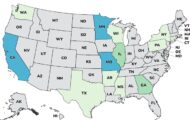The Center for Food Safety and Applied Nutrition (CFSAN), the science-based regulatory organization in the FDA, has published its Science and Research Strategic Plan. The Plan focuses on what the agency thinks are the most important factors in keeping the American food supply safe and puts forth five goals public health officials think will have the greatest impact.
 The first goal is to better control and prepare for hazards. The Agency will conduct research that supports regulatory policies, rules, and guidances. Research includes detecting and analyzing microbial pathogens and chemical contaminants, the safety of food additives, and focuses on the five FDA-regulated foods that are most susceptible to problems: fresh produce, eggs, dairy products, seafood, and spices. Those five food groups have been responsible for many foodborne illness outbreaks throughout the years.
The first goal is to better control and prepare for hazards. The Agency will conduct research that supports regulatory policies, rules, and guidances. Research includes detecting and analyzing microbial pathogens and chemical contaminants, the safety of food additives, and focuses on the five FDA-regulated foods that are most susceptible to problems: fresh produce, eggs, dairy products, seafood, and spices. Those five food groups have been responsible for many foodborne illness outbreaks throughout the years.
Goal number two is to create faster and validated methods to screen and identify potentially unsafe foods. Public health officials want to reduce the time it takes to identify a problem, especially detecting pathogenic bacteria such as Salmonella and E. coli. In light of the Hepatitis A outbreak currently affecting Americans, they are working on a two-day detection method to find norovirus and Hepatitis A in foods.
Strategic goal number three is to influence consumer behavior toward healthy dietary choices. Informing Americans about the 2010 Dietary Guidelines is a primary goal, along with evaluating health benefits resulting from consumer changes.
Developing leading edge technology for evaluating scientific information is Strategic Goal Four. The Agency receives high volumes of data every single day, so they need information technology to evaluate foodborne illness outbreaks, assess risks from hazards, and assess the safety of food additives.
Finally, the fifth goal is to improve adaptability and responsiveness. Food related emergencies happen almost every day. The response to these emergencies affect the health of all Americans. FDA must collaborate with other agencies for better responsiveness and shared expertise.




